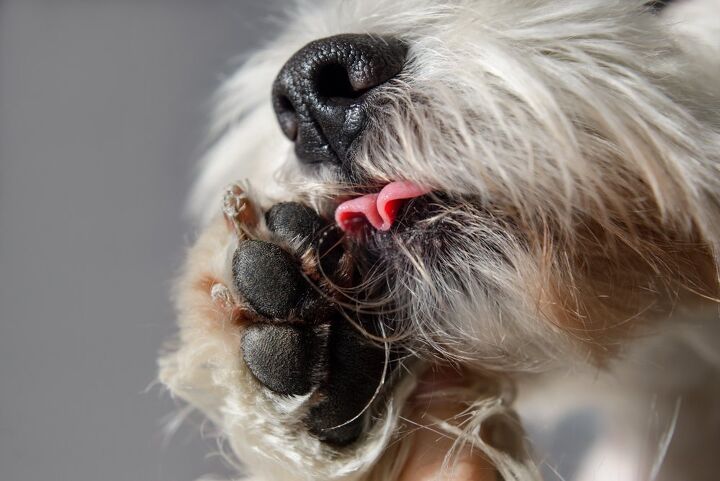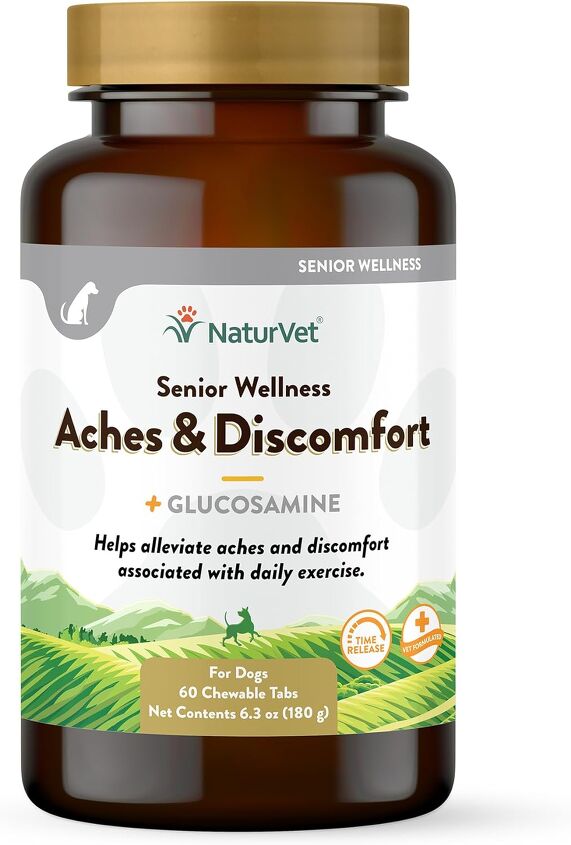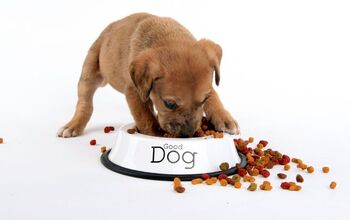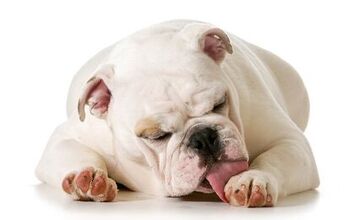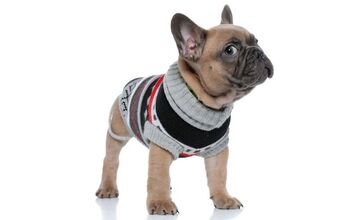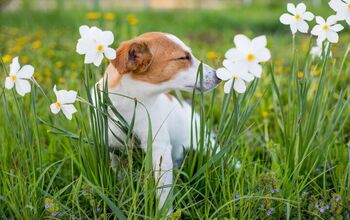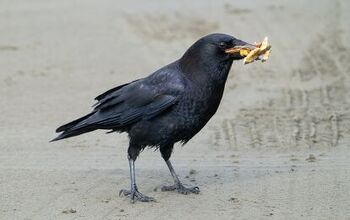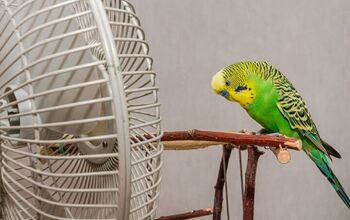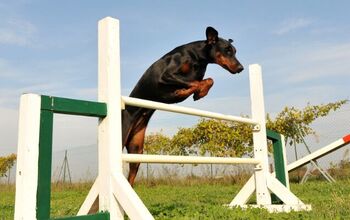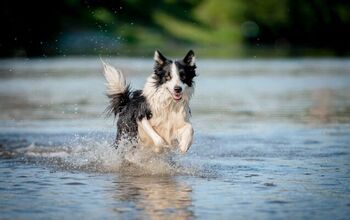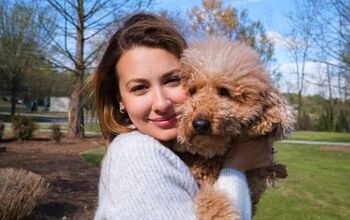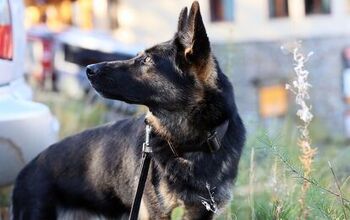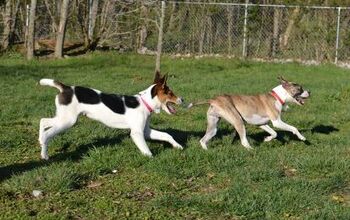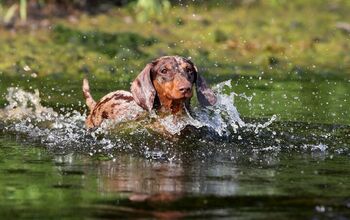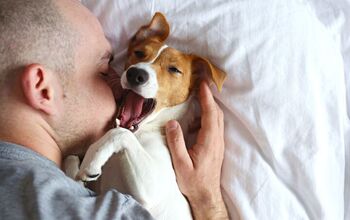Why Is My Dog Licking and Chewing His Paws?

You might think it’s gross, but your pooch certainly doesn’t – canines are known to lick themselves as a way of grooming. While your dog might lick their body thoroughly to keep it clean, sometimes, their self-grooming can be abnormal. If you notice that your pet is licking or even chewing their paws obsessively, it should raise concern. This type of behavior might indicate an underlying medical issue, so here’s what you need to know before you phone your vet.
Is It Normal for Dogs to Lick and Chew Their Paws?
While some licking of their paws after they get dirty can be perfectly normal, constant licking or chewing of the paws is certainly not usual behavior. There could be several reasons behind this, and it could indicate that your attention and even intervention are needed. Here are some of the most common reasons why dogs lick and chew their paws.
- Allergies:
Allergies, including food allergies, environmental allergies (such as pollen or dust mites), and contact allergies (for example, from cleaning products or lawn chemicals), can lead to itching and discomfort in dogs. Paw licking and chewing can be a response to this itching. If you suspect that an allergy might be in question, don’t hesitate to visit your vet.
- Skin irritation or infection:
If your dog's paws are red, swollen, or have an unpleasant odor, it may indicate a skin infection or irritation. Bacterial or fungal infections, as well as foreign objects like splinters or thorns, can lead to serious issues down the road. Again, if you notice any of the above, it’s time to visit the vet.
- Dry or cracked paw pads:
Dry or cracked paw pads can be uncomfortable for dogs. Licking and chewing may be their way of trying to soothe the discomfort. This happens to many dogs, and can be caused by their environment, the surface on which they walk, and many other things. Luckily, you can prevent this with paw wax that will create a barrier between the pads and the walking surface, or treat existing issues with paw butter that soothes and repairs the pads. This particular 2-in-1 paw butter and wax is a favorite of mine because it is made from all-natural ingredients and heals cracked paws in no time – while simultaneously preventing future irritation and dryness.
- Anxiety or stress:
Dogs may engage in excessive licking or chewing as a coping mechanism for anxiety or stress. This behavior is sometimes referred to as "psychogenic licking." Perhaps your pet is having issues with anxiety or is overly stressed. Are you out for a long time during the day? Consider every possibility when trying to get to the root of the problem.
- Pain or discomfort:
Some dogs may lick or chew their paws if they are in pain, perhaps due to an injury, arthritis, or other medical conditions. This is common for senior dogs, whose legs simply aren’t as strong as before. Schedule a visit to the vet in order to soothe their pain. If arthritis is confirmed, then try natural remedies for pain relief, such as this dog supplement for joint pain, which contains natural ingredients that reduce inflammation, improve mobility, and help senior dogs get much-needed pain-free movement.
- Behavioral issues:
In some cases, dogs may develop a compulsive behavior of licking or chewing their paws, which can be related to underlying behavioral issues. If none of the above are the reasons for their paw licking, then some quirky behavior issue might be the cause. Try visiting a behavioral expert or a vet who has experience with stress and behavioral disorders in dogs.
In the end, if your dog is often licking and chewing his paws, it is always a good idea to consult with a veterinarian. A vet can perform a thorough examination to identify the underlying cause and recommend appropriate treatment. Treatment may involve addressing allergies, providing medication for infections or pain, changing your dog's diet, or addressing any underlying behavioral issues. It's essential to address the root cause to ensure your dog's comfort and well-being. Don’t try anything on your own, like putting some form of deterrent on the paws to prevent the behavior. Let your vet know what could be the issue, and they will take care of the rest.

A proud mama to seven dogs and ten cats, Angela spends her days writing for her fellow pet parents and pampering her furballs, all of whom are rescues. When she's not gushing over her adorable cats or playing with her dogs, she can be found curled up with a good fantasy book.
More by Angela Vuckovic



